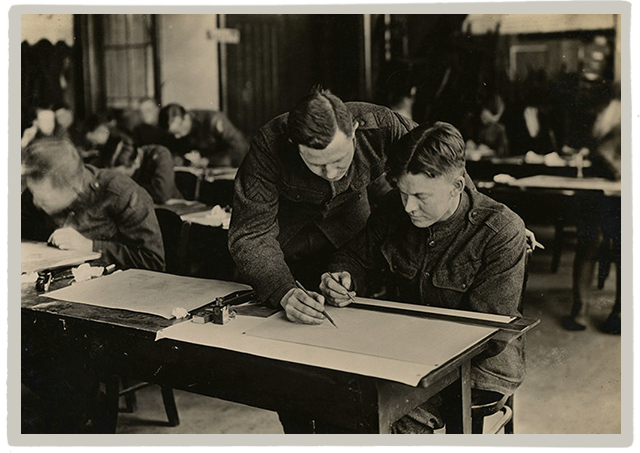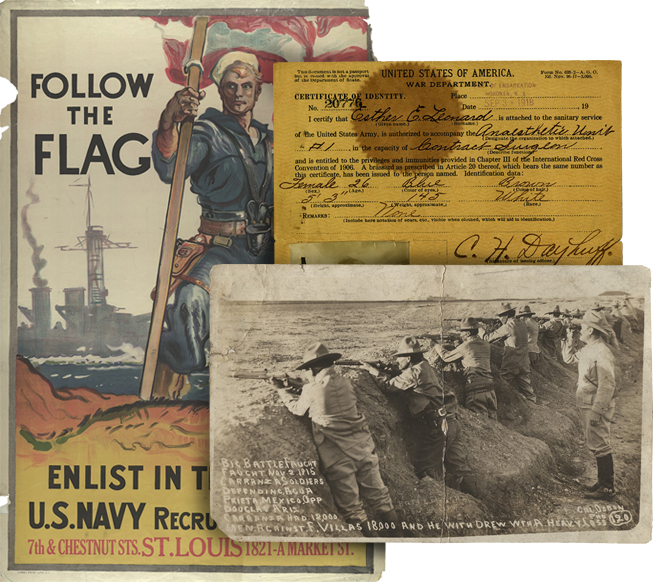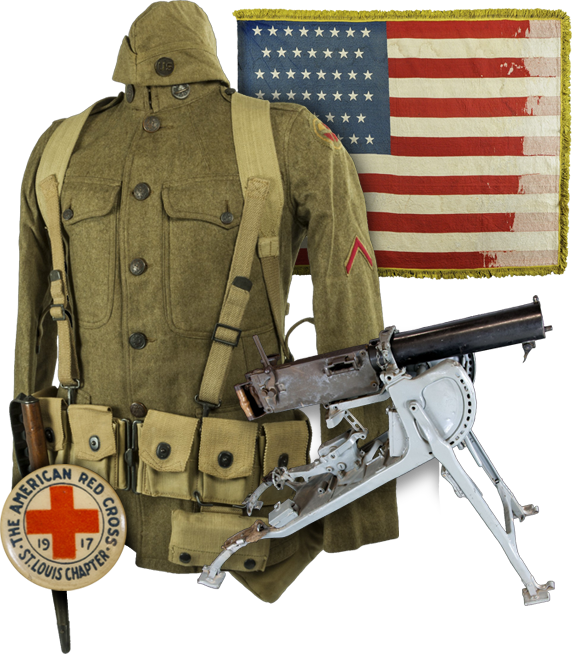William Schoenfeld letter to W.C. Kohn letter - October 15, 1918

Transcript
October 15, 1918. Dear Bro. Kohn, Though the work of these days is hard to cope with, I yet feel impelled to take the time to write you in reference to our camp work in co-operation with the N.L.C., because that seems to me, in view of recent developments, of supreme importance and calling for immediate attention. What we settled at Chicago was that the basis of all co-operation with the N.L.C. must be the recognition of our Board being a coordinate body with the N.L.C., so that in all things our Board must receive the treatment accorded an equal and not that of a subordinate body. For this reason, I conceive, you insist upon the explicit acknowledgment of that fact by the N.L.C. This achieved, the question will be, how is the coordinate co-operation between the N.L.C. and our Board to find practical expression? The N.L.C. acts through its Executive Committee. Does our Board contemplate the creation of a like Committee to discuss and arrange all matters of co-operation with the N.L.C.? It requires no demonstration to show the necessity of having a body vested with authority and located so, that is will be easy to get together with the Exec. Com. of the N.L.C., whenever any matters requiring consultation and agreement as to the course to be pursued, arise. Heretofore, we have had only one man, Brunn, acting as consultative associate with the Exec. Com. of the N.L.C. That appears to have been unsatisfactory to your Board, and I am prepared to say, this arrangement has not only served to put the N.L.C. in the foreground with the public at large, but has prevented our exerting that measure of influence with the N.L.C., and hence upon the work at large, which under a different arrangement we might have exerted, to which in view of our numbers we may justly aspire, and which in the interest of principles we must conserve and uphold, we should strive to exert. Far better it would be to join in with the N.L.C. as a constituent body and demand representation on the Executive Com. proportionate to our numbers. We could then help to shape the course of action in all matters and insist on the enforcement of right principles and the exclusion of all men from service in the camps who do not meet the test of conservative Lutheranism. But if I have read aright the mind of the synodical officials and of the Board, this would be considered an impossible proposition, because it would be labelled practical unionism and in any case be so interpreted by many of our own people and hence produce an effect with some, which the pastors feel they must with all energy combat. If this is the case, and we yet see the necessity of co-operation, no

Transcript
[page 2]-W.K. other alternative, to my mind, remains, but the creation of a Com. by your Board vested with powers corresponding with those possessed by the N.L.C. Exec. Com. and which would have authority to settle all questions of co-operation, as they come up, with that Exec. Com. Of course, your own Board could act as such Com. or elect from its members a subcom. charged with this work and vested with the necessary authority. Whatever plan be accepted, it seems necessary that this Com. should be located right here, so that it may at any time get together with the N.L.C. Com. You might be tempted to say, why not have the N.L.C. Com. located in Chicago? But in view of nearly all the headquarters of the various National bodies and the Government itself being located in [New York] and Washington, you will, I assume, agree that the practical and economic thing is to have these Committees here in the East. I understand the suggestion has been made, to have our Eastern Dept. transferred to Washington. We of the Eastern Dept. have only one concern and that is that the work be done most effectively and economically, and hence would surely interpose no objection to such a transfer, if that would serve this end. However, since it is with the N.L.C. we must above all else seek harmonious co-operation for the most effective continuation and possible expansion of our work, it does seem to me that the only rational course to pursue would be to have our Com. located right here in [New York] since we could hardly ask the N.L.C. to transfer its headquarters to Washington. And certainly we do not want to be petty about the mere question of locality. The important thing will be to have our Com. made up of men of the right type, of whose ability to do the right thing your Board entertains no doubt. If such confidence you and others do not repose in us, why then do not hesitate to say so and have the men appointed who do enjoy such confidence. The work is more important than the men who may constitute the committees. We all are but the servants and should be most willing to make way for men who are either more capable or else enjoy the confidence of the responsible officials in larger measure than we do. Although you will permit me to say right here that we of the Eastern Com. are as much concerned about hewing straight to the line of our divinely imposed duty and according to right principles as are any of our brethren. Nevertheless there may be a very substantial difference in our convictions as to the right treatment of the fundamental issues in this work, for which reason it may be your desire to make an end of all co-operation with the N.L.C. and this because you see no way of escaping from what appears to you as impermissible and hence intolerable unionism, while we are satisfied that what must be shunned as intolerable unionism can be eliminated without

Transcript
[page 3]-W.K. refusing co-operation with the N.L.C. If your desire should be to break off all relations with the N.L.C., you should then, in my judgment, candidly state this with the reasons therefor, not only to us, but to the N.L.C. and the Church at large. Until now my impression has been that the Board has held that co-operation must not cease, though it has been much troubled by what appear to it as unionistic practices. Thoroughly agreed am I that no Board should take the position of simply ignoring practices which it feels it can neither justify nor condone in the men under its supervision; nor can the Board by ignoring such practices rid itself of its own responsibility and place it wholly on its workers in the field. Nor is there any warrant for hiding the fact that what has been done in the camps by our men has been not seldom of a character which men in our circles honestly hold to be and denounce as unionism and hence a sacrifice of principle and of that Truth which we may never sacrifice. Here is the difficulty that must be faced and cleared up, or removed, if we are to see clearly, on what lines and to what extent we can enter into co-operation with the N.L.C., because of those undeniable differences which exist between the synods they represent and ourselves. Now, as I see it, the difficulty for those who see in the co-operation of the camp pastors in common services and joint distribution of the Lord

Transcript
[page 4]-W.K. command to preach the gospel to every creature. The governmental chaplain can be governed neither by congregational or synodical standards, he must treat with every man individually, according to his own spiritual status and confession of faith. And does not the same thing hold good with respect to the men in the camps and the work of our camp pastors with and among them? And is there anything wrong, in view of the undeniable conditions and our imperative duty, in treating with every individual solider and every ministerial Lutheran camp worker on the basis of his own individual spiritual status and confession?

Transcript
[page 5]-W.K. guilty of unionism, as they see it, they would be perfectly satisfied to withdraw from all camp work and leave our boys in the care of the Lord, admonishing them to avoid all false religious workers and to nourish their souls by private reading of the Word of God. That position with respect to the members of my congregation I could only share, if I were to be compelled to have men serve our boys, together with our pastors, concerning whom I could have no assurance that they would not preach to them the fundamental gospel truth pure and undefiled, or otherwise have our pastors barred from all camp activities. If there is any possible way, in which I can have the supreme duty of the Church and myself as pastor towards the members of my congregation fulfilled, that of preaching the gospel of Christ to them, without conniving at anything contrary to the gospel truth being taught them, then I hold it my imperative and unescapable duty to do this. And until it can be shown that this is impossible, I shall not feel that before God it is right for me to say that I am going to withdraw from all camp work and leave my boys to the tender mercies of the Lord and private edification through reading of the Bible and prayer. And I do believe it possible and practicable to make sure that no minister will be sent forth by the N.L.C., who does not stand with us on the Sola Scriptura, the Sola Gratia, and the Sola Fide. How many of our boys are weak in knowledge and in faith and in all that constitutes strength in the Lord! What will happen to these, if we withdraw? They will be left an easy prey to all manner of false prophets. Can you justify such action before God, except when really compelled either to grant leave to men known to teach false doctrine to serve our boys and thus place the stamp of approval and orthodoxy on them or else to withdraw entirely from all camp work? During the last year we have had a joint or free conference in Brooklyn which I have attended as regularly as my pastoral duties permitted and was delighted to find, how earnest the men of the other synods are to know and stand up for the whole Bible truth and that in fact the large number are in perfect agreement with us as to doctrine and ready and willing to fight for real Lutheran practise and discipline. Encouraged by the experience made in Brooklyn, I undertook to bring about a joint conference of all Lutheran ministers in what we term the Metropolitan District and this conference is now in existence. Also let me say that much dissatisfaction has been expressed with the Merger by Ministers of

Transcript
[page 6]-W.K. the synods involved in this vicinity. Earnest men there are among these ministers who desire not so much union as unity and who are not prepared to sacrifice truth and principle to expediency or pragmatism. One General Council pastor, and a prominent man in his synod, told me, he knew ten reasons for their joining with Missouri over against one to join with the General Synod, he also declared in a mixed conference of Council and General Synod men that if the merger was to stand, the ministers would all have to get out of the lodges. And may I say that, in my judgment, our men everywhere should get busy to arrange for joint conferences with the Lutheran ministers of Council and Synod, in order to strengthen those who already have the knowledge of the Truth and to bring the light of Truth to the others who may be and are earnestly seeking it. Much more could I write on this subject, but time forbids. This much I have written merely to substantiate the practicability of my contention that we can make sure that co-operating with the N.L.C. no minister shall enter the camp service who does not stand right on all Fundamentals. In this connection I would also ask you to ponder the protection we secure for our boys who so often know next to nothing about the things that divide the different synods, if this plan we follow, and how much this will mean towards strengthening everywhere those men who are earnestly laboring for unity in the truth over against all liberalists and indifferentists. Lindemann has written you very fully on the limitations and difficulties of work to be done solely outside the camps. That will neither give our boys the service needed, nor protect them against all manner of seduction within the camps. Also, under the new regulations the quietus may be put on that kind of work by the War Dept. Here comes to my mind a statement made by one of our high officials a short time ago, that if we ministers did not stand in the breach, practically all our men would rush into any unionistic undertakings. And he is a Western man. Will you be able to satisfactorily explain to our men under arms, and so hold them, if you should withdraw from the camps and leave the N.L.C. men their only accessible spiritual servitors? You may deplore the fact that our men are not better posted as to synodical differences, but here again you cannot ignore the facts and must deal with conditions as they are not theorize.

Transcript
[page 7]-W.K. I have just read Bente

Transcript
[page 8]-W.K. P.S. I regret very much that you did not consent to coming East to consult with us as to what definite lines should be followed in any new understanding or agreement entered into with the N.L.C. Nor do I understand, why you did not give our Eastern Com. in writing a definite statement of your position and purpose. Your Board and you as chairman of the Board are after all the responsible agents of the Synodical Conference and as such must be prepared to lay down the principles to be followed and to outline precisely the lines, along which the cooperative work is to be done and what are to be the limits of the cooperation desired and acceded to. Our Com. as a subordinate body must follow your instructions and must insist on receiving from you a positive and definite statement as to what we are to do or not to do. I appreciate your position and the difficulties, with which you have to contend, but you cannot leave things in abeyance. We certainly are all agreed in our fundamental convictions and in our desires with respect to this most important work. So, why not have an open expression and a mutual discussion of how best to solve our problems and fulfill our duty without any compromise of either principle or Truth? Certainly you fully appreciate our position and can have no doubt with respect to our earnest desire to do the right thing and hence to secure also all our rights and avoid any neglect of duty. Let us take the bull by the horns. Wm. Schoenfeld.
Details
| Title | William Schoenfeld letter to W.C. Kohn letter - October 15, 1918 |
| Creator | Schoenfeld, William |
| Source | Schoenfeld, William. Letter to W.C. Kohn. 15 October 1918. Graebner, Theodore Collection. Concordia Historical Institute, St. Louis, Missouri. |
| Description | Letter to W.C. Kohn, President of the Lutheran Church Board for Army and Navy, from William Schoenfeld, pastor for Immanuel Church in Manhattan, New York and one of the founders of the Lutheran Education Society. Schoenfeld discussed multiple issues facing Lutheran pastors within the army and elsewhere. He is concerned with delivering a true Lutheran message to soldiers and sailors serving overseas and in military camps based on Lutheran Fundamentals. |
| Subject LCSH | World War, 1914-1918--Public opinion; World War, 1914-1918--Religious aspects; Lutheran Church |
| Subject Local | WWI; World War I |
| Contributing Institution | Concordia Historical Institute |
| Copy Request | Transmission or reproduction of items on these pages beyond that allowed by fair use requires the written permission of the Concordia Historical Institute: 314-505-7900 |
| Rights | The text and images contained in this collection are intended for research and educational use only. Duplication of any of these images for commercial use without express written consent is expressly prohibited. |
| Date Original | October 15, 1918 |
| Language | English |



